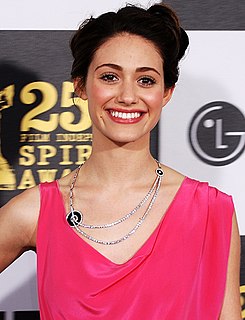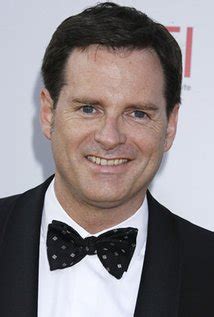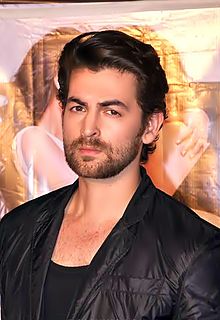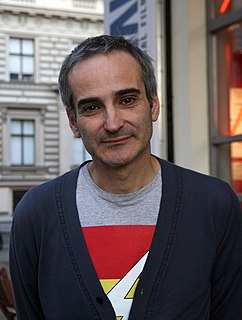A Quote by Clint Eastwood
After directing awhile, you get an instinct about it, but you have to be able to trust your own feelings. Invariably, two-thirds of the way through a film, you say, "Jeezus, is this a pile of crap! What did I ever see in it in the first place?" You have to shut off your brain and forge ahead, because by that time you're getting so brainwashed. Once I commit myself to a film I commit myself to that ending, whatever the motivations and conclusions are.
Related Quotes
If you make a film, that magic is not there, because you were there while shooting it. After writing a film and shooting it and being in the editing room every day, you can never see it clearly. I think other people's perception of your film is more valid than your own, because they have that ability to see it for the first time.
Your first film is always your best film, in a way. There's something about your first film that you never ever get back to, but you should always try. It's that slight sense of not knowing what you're doing, because the technical skills you learn - especially if you have a film that works, that has some kind of success - are beguiling. The temptation is to use them again, and they're not necessarily good storytelling techniques.
Theater is such a different ballgame than film. And that's really why I stayed in film, because I really love the reality of connecting with your own feelings, and really putting that across in a realistic way. In film, the smallest muscular movements in your face, that are produced just by sheer feelings, you're not controlling them in anyway, can be seen by people in the audience because your face is sometimes, frighteningly, 40 feet wide!
The hardest work that actors have done, including myself, is on poorly written scripts. And when you first start out you do anything. I did a lot of crap. I did more crap than I can tell you. But you did it because you needed the money. You have to pay for your pictures and resumes, and classes and insurance and food like everybody else. In those days if it was crap you just didn't put it on your resume.
When I am engaging with people of other religious faiths, I find myself unable to commit to their conclusions or agree with their assessments. Yet at the same time I come away encouraged by spiritual truths found in their traditions, thrilled by new insights into my own faith, and more passionate than ever about being a disciple of Christ.
If you go into a forest of film stories, you never can get right through the forest straight ahead; you always have to make some U-turns or whatever, because there's some trees in the way. And that's what I'm doing. Sometimes, as an actor, if you make only these intellectual, wonderful films, which I love, from time to time you have to make a film like Armageddon so people see that you're still around.
The most difficult thing about acting and directing in a film is acting and directing in a film. Every ounce of your physical and emotional being, and your analytical and thoughtful and producorial being, is being exercised at all points. You are 100% working on overdrive, but because it is only for X amount of days, if you have the stomach for it, you hustle through. It's a massive undertaking, and I think preparation is the key to success for that endeavor.
When I make films I'm very intuitive; I'm instinctive. When you are shooting there's little time to think about abstract ideas, it's about getting things done, getting them right, and trying to channel the energies and get the best of whatever you have on your set. It's only once the film is finished that it's like, "Okay, let's try to figure out what happened." Try to figure out exactly what I did.



































